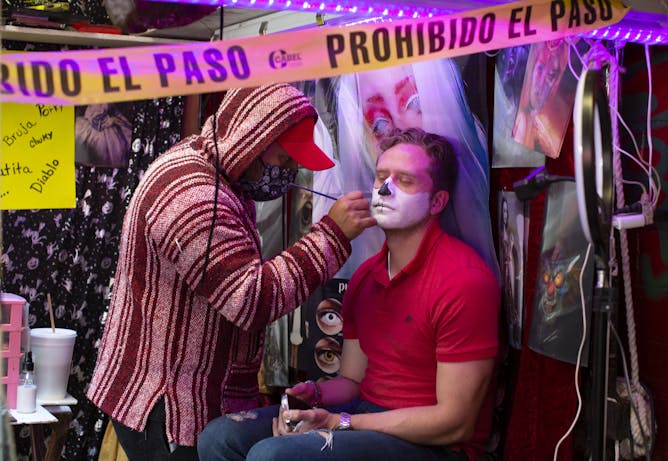|
|
|
|
Some companies are urging employees to return to the office after a two-year stretch of pandemic flexibility. But there’s a subset of Americans whose jobs are going to stay permanently remote. For some of these workers, that freedom has spurred the realization that they can plug in their laptops from anywhere in the world.
Countries, meanwhile, have an eye on these “work tourists.” Eager to recoup tourism dollars lost during the pandemic, some of them are even crafting visa policies that allow remote workers to stay for months at a time.
Aside from changing the nature of tourism, this shift also has an effect on local communities that have traditionally expected international visitors to leave after short stays.
Rachael Woldoff and Robert Litchfield, authors of “Digital Nomads: In Search of Freedom, Community, and Meaningful Work in the New Economy,” write about the dynamic between remote workers and local communities in places like Bali and Mexico City. Some residents, they observe, are starting to bristle at the ways in which these long-term visitors are affecting culture, cost of living and housing.
Also today:
|

|
Nick Lehr
Arts + Culture Editor
|
|

A tourist has makeup done ahead of Day of the Dead on Oct. 30, 2021, in Mexico City.
Alfredo Martinez/Getty Images
Rachael A. Woldoff, West Virginia University; Robert Litchfield, Washington & Jefferson College
Locals usually see tourists as a way to boost the economy. But at a certain point, resentment starts to build.
|
Economy + Business
|
-
John Logan, San Francisco State University
Public support for unions is at a near 60-year high. Meanwhile, self-organizers at major American chains are spearheading a new movement to mobilize.
-
Aaron Sojourner, University of Minnesota
The coronavirus pandemic highlights the importance of ensuring safe workspaces, and a new study suggests unionization leads workers to speak up about poor conditions.
-
Jose Ivan Rodriguez-Sanchez, Rice University
The immigration decline over the first two years of the coronavirus pandemic led to an annual 1.1% GDP reduction, an economist estimates.
|
|
Politics + Society
|
-
Nicholas Allen, Royal Holloway University of London
The new leader of the Conservative party inherits a country in crisis.
|
|
Science + Technology
|
-
Michael Heithaus, Florida International University
Just about every creature on Earth needs to grab some Zs from time to time. Imagine trying to doze while dodging great whites and killer whales.
|
|
Arts + Culture
|
-
Mitchell Nathanson, Villanova School of Law
If any industry is crying out for unionization, it’s this one.
-
Peter Dreier, Occidental College
Inspired by real events, the films tackle issues of race, gender and class in ways that will resonate with many of today’s viewers.
|
|
Education
|
-
Shaun M. Dougherty, Boston College
Jobs in the clean energy industry are expected to grow thanks to a historic federal investment in fighting climate change. Many of the jobs have low barriers to entry, an expert says.
|
|
Environment + Energy
|
-
Jasmina Burek, UMass Lowell
Cutting a home’s energy waste starts with stopping the leaks. Energy-efficient appliances and windows can make a difference, too.
|
|
|
|
|
|
| |
| |
| |
| |
|
|
|
|
|
|
|